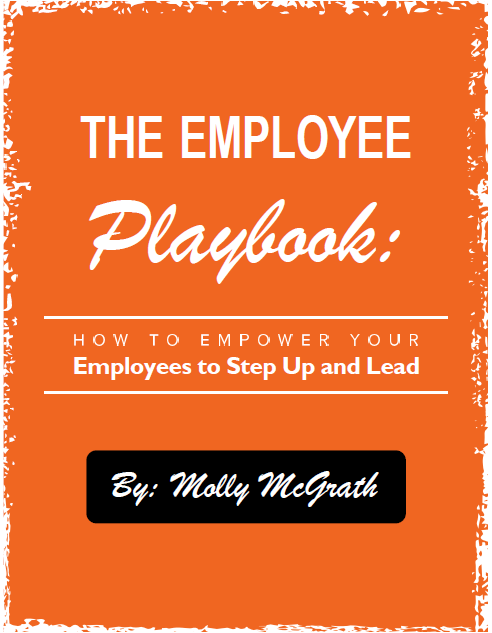If you’ve been reading along with us, you’ve been introduced to the concept of permission as the element in your life that has the potential to push you past the state of disconnect that many of us find ourselves in. (If you want to catch up on previous posts, here are the first, second and third.)
Once you grasp the idea of permission, it’s natural to wonder what is keeping you from it. A life-changing tool for growth is within your grasp, so why haven’t you grabbed it?
 As we spelled out in our previous post, there are some pervasive myths that lodge themselves in our craniums and allow no room for permission. Along with those, there are some patterns that are also working hard to block out the permission you so desperately need to allow yourself. These patterns can be harder to recognize than the myths, because we live so much of our lives in them.
As we spelled out in our previous post, there are some pervasive myths that lodge themselves in our craniums and allow no room for permission. Along with those, there are some patterns that are also working hard to block out the permission you so desperately need to allow yourself. These patterns can be harder to recognize than the myths, because we live so much of our lives in them.
You may identify with one or more of these patterns, but know that awareness of all of them is the first step toward lessening their hold on your life. By seeing them coming, you can stop them before they stop you. To that end, here they are:
- Guilt: A sense of “should.” I should be spending more time with my kids. I should have called my parents. It’s a feeling that you have done something wrong, and it eats away at you, leaving you with the corrosive stress of missing what could have, should have or would have been.
- Shame: The feeling that you are a bad person. We feel shame when we don’t like who we are or who we are being. Shame has the tendency to be a silent stressor and pattern, whereas people are more likely to express their guilt and share it with others.
- Fear: The sense or feeling that there is something to be afraid of – we will lose something, fail, make a fool of ourselves. Fear can be caused by conditioning; maybe a parent raised you with constant comments along the lines of “Watch yourself, you could fall,” or “Don’t go too far from me, someone could kidnap you.” These little sneaky comments can lead to a pervasive and overwhelming sense of fear and cause us to question our own decision making and intuition.
- Approval by committee: Soliciting feedback, weighing our options, getting opinions and advice. Seems harmless, right? When you overdo it, though, you can end up unable to trust your decisions and judgment, which can have serious long-term consequences for your growth and happiness. When you don’t get approval, you stop or don’t move forward, even when you know something is the best choice for you.
- Assumptions and comparisons: Comparing ourselves to others and assuming they’re better off than us. One pretty common assumption is that everyone else is happy; therefore, if we are not, something is wrong with us. These days, with Facebook, Twitter and other social media, we see mostly the positive aspects of people’s lives – and compare ourselves and our lives to what we believe to be true for others. Comparing yourself to others or making judgments about where you are in life relative to some ideal image you conjured up is pointless.
- Feeling unworthy: This is an epidemic in our society. At some point, we’ve all questioned whether or not our life really matters. When it comes to giving yourself permission, we most often hear the voices that say, “Who am I to do this? Who would listen to me anyways?” This feeling can stop you before you even get going, leaving you to question everything in your life and on your path.
- Avoidance/numbing out/muscling through: These are all ways we keep ourselves from obtaining what we desire. Avoidance often shows up when you don’t want to face people who may give you honest feedback on what’s happening in your life. Numbing out is when you simply choose to stop feeling. You eat your way through the day, drink your way through the night, or find some other way to not have to think about what’s in front of you. Muscling through is forcing your way and doing whatever you can to make something happen just to get out on the other side of it. Most of the time you end up working three times as hard, with little or nothing to show for it.
- Deflecting/pre-qualifiers: We tend to deflect and use pre-qualifiers when we are in hard and uncomfortable conversations. We do this mostly to deflect and avoid taking ownership of what we are about to do or say. Here are a few common ones we’ve either used or heard (or both):
- I probably sound like a bitch, but…
- It’s not about the money…
- I don’t care…
- It’s not that important…
- That’s fine…
- I don’t mean to be funny…
It’s important to recognize that these statements keep us from being authentic with others and are essentially taking away our own personal power when we use them.
- Attachment: This one is a big source of unhappiness. The more we are attached to the way something should be, the more stress it causes us. We need for things to look, be, and turn out a certain way. We have grandiose expectations and we hold to them – and when things don’t turn out that way, it stops us cold.
If you’re like us, you recognize all of these patterns and can trace them to important points in your life, when you got bogged down. When you stopped. When you just needed permission.
Do you need help getting the right team on board and empowered? Let us help you get the right person in the right seat! Click here to learn more about our Smart Hire Solution.

